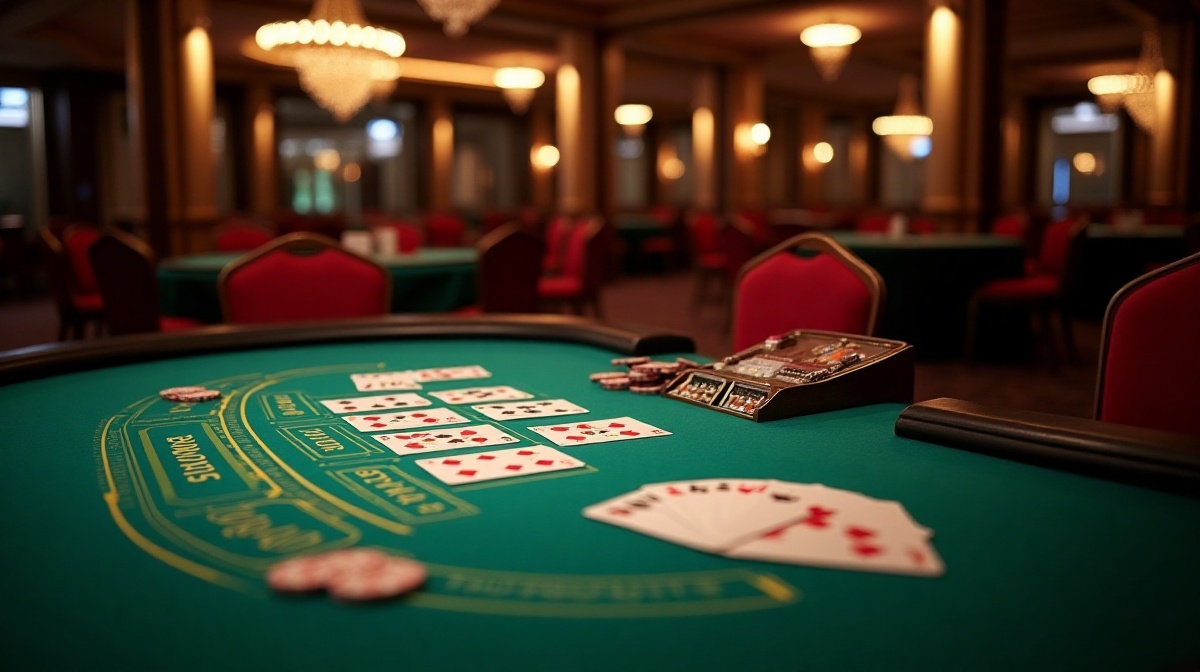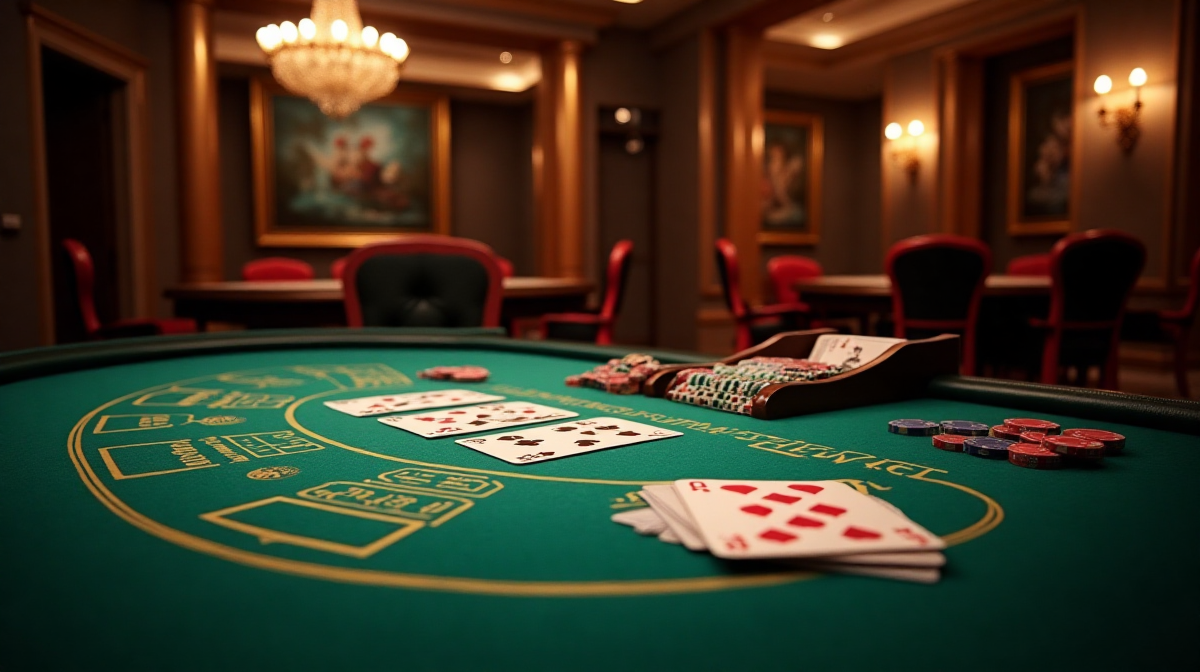Blackjack: Rules & Strategy for Wins
What is Blackjack? A Brief History
Blackjack, also known as 21, is a classic casino game steeped in history. Its origins can be traced back to 18th-century France, where it was known as “Vingt-et-Un” (Twenty-One). Over time, the game made its way to the United States, particularly New Orleans, where it gained popularity. A crucial turning point came with the introduction of bonus payouts for certain hands, like the Ace and Jack of Spades, leading to the name “Blackjack.” Today, it remains one of the most beloved casino games worldwide, and online platforms like betfuse have made it even more accessible.
Why Blackjack is Popular: Appeal & Accessibility
Blackjack's enduring appeal lies in its combination of simplicity and strategy. Unlike some casino games that rely heavily on luck, blackjack allows players to make informed decisions that directly impact their odds of winning. This element of skill is incredibly attractive. Furthermore, the game is relatively easy to learn, making it accessible to beginners. The availability of online versions, including platforms offering betfuse correct score predictions, further broadens its reach.
Blackjack Terminology: Essential Words to Know
Before diving into the game, understanding the terminology is vital. Hit means to ask for another card. Stand means to end your turn without taking another card. Double Down allows you to double your bet in exchange for one more card. Split allows you to separate a pair into two separate hands. Bust means to exceed 21, resulting in an automatic loss. “Insurance” is a side bet offered when the dealer’s upcard is an Ace.
How to Play Blackjack: The Core Rules
Objective of the Game: Beating the Dealer
The primary objective in blackjack is not to get as close to 21 as possible, but to beat the dealer. You win if your hand total is higher than the dealer’s, without exceeding 21. If you exceed 21, you bust and automatically lose, regardless of the dealer’s hand.
Card Values: Understanding the Point System
Cards are assigned point values as follows: Numbered cards (2-10) are worth their face value. Face cards (Jack, Queen, King) are each worth 10. Aces can be worth either 1 or 11, depending on which value benefits the player’s hand the most.
The Deal: Step-by-Step Gameplay
The game begins with players placing their bets. The dealer then deals two cards face up to each player and two cards to themselves – one face up and one face down.
Player Options: Hit, Stand, Double Down, Split, Surrender
After receiving their initial cards, players have several options. They can hit to request another card, stand to end their turn, double down to double their bet and receive one more card, split if they have a pair, or surrender to forfeit their hand and receive half their bet back (not offered in all casinos).
Dealer Rules: How the Dealer Plays Their Hand
The dealer's play is more restricted. Generally, the dealer must hit until their hand totals 17 or more. In many casinos, the dealer must also hit on a soft 17 (a 17 including an Ace counted as 11).
Blackjack Payouts: Winning Amounts & Odds
A blackjack (an Ace and a 10-value card) pays out at 3:2 odds, meaning a 15. If you beat the dealer with a non-blackjack hand, you win even money (a 10). The house edge in blackjack is relatively low compared to other casino games, especially when employing basic strategy.
Advanced Blackjack Rules & Variations
Insurance: Protecting Against Blackjack
If the dealer's upcard is an Ace, players are offered insurance, a side bet that the dealer has blackjack. Insurance costs half of your original bet and pays 2:1 if the dealer has blackjack. It’s generally not recommended to take insurance, as the odds are unfavorable.
Side Bets: Expanding Your Gameplay Options
Many casinos offer side bets that add variety to the game. Examples include 21+3, which bets on your hand and the dealer's upcard forming a three-card poker hand, and Perfect Pairs, which bets on your initial two cards being a pair.
Blackjack Variations: European Blackjack, Spanish 21, Pontoon
Several variations of blackjack exist. European Blackjack typically has different rules regarding doubling down and splitting. Spanish 21 uses a 48-card deck (removing the 10s) and offers different bonus payouts. Pontoon is a British version with unique rules and terminology. Platforms like betfuse are increasingly offering variations of the game.
House Edge: Understanding the Odds in Different Variations
The house edge varies depending on the specific rules of the blackjack variation being played. Understanding these differences is crucial for making informed betting decisions.

Basic Blackjack Strategy: Maximizing Your Chances
The Importance of Basic Strategy: Why It Works
Basic strategy is a mathematically derived set of rules that tells you the optimal play for every possible hand combination, given the dealer's upcard. Using basic strategy significantly reduces the house edge.
Basic Strategy Charts: a Comprehensive Guide
Basic strategy charts are readily available online and provide a quick reference for the correct play. These charts are categorized by your hand total (hard totals, soft totals, and pairs) and the dealer's upcard.
When to Hit, Stand, Double Down & Split Based on Your Hand & Dealer's Upcard
For example, you should generally hit if your hand total is 12-16 and the dealer’s upcard is 7 or higher. You should stand on a hard 17 or higher. Doubling down is often advantageous when you have a hand of 11, or a hard 10 against a dealer's upcard of 9 or less. Splitting pairs is dependent on the pair and the dealer's upcard.
Avoiding Common Beginner Mistakes
Common mistakes include hitting on a hard 17 or higher, taking insurance, and not using basic strategy.
Advanced Blackjack Strategy: Taking Your Game Further
Card Counting: Concepts & Techniques – Disclaimer on legality
Card counting involves tracking the ratio of high cards to low cards remaining in the deck. This allows players to adjust their bets based on whether the remaining deck is favorable to them. Disclaimer: Card counting is not illegal, but casinos may ask you to stop playing if they suspect you are counting cards.
Bankroll Management: Strategic Betting for Long-Term Success
Effective bankroll management is essential for long-term success. This involves setting a budget for your blackjack sessions and sticking to it, as well as adjusting your bet size based on your bankroll and risk tolerance.
Reading the Table: Observing Opponents & Dealer Tendencies
Observing other players and the dealer can provide valuable insights. Look for betting patterns and dealer tendencies that might indicate potential advantages.
Shuffle Tracking: A more meticulous card counting approach
Shuffle tracking is a more advanced technique that involves tracking specific groups of cards through the shuffle process. It requires significant skill and concentration.
Blackjack Etiquette & Casino Tips
Proper Blackjack Etiquette: Respecting the Table & Others
Good etiquette includes not touching your cards after they are dealt, signaling your decisions clearly to the dealer, and being respectful of other players.
Choosing the Right Blackjack Table: Considerations & Factors
Consider the table limits, rules variations, and the number of decks used when choosing a blackjack table. Tables with fewer decks generally offer better odds.
Responsible Gambling: Playing Within Your Limits
Always gamble responsibly and within your means. Set a budget and stick to it, and never chase your losses.
Online vs. Live Dealer Blackjack: Pros & Cons
Online blackjack offers convenience and accessibility, while live dealer blackjack provides a more immersive and social experience. Betfuse prediction correct score services are often available for both formats.

Conclusion: Mastering the Art of Blackjack
Recap: Key Takeaways for Winning Blackjack
Blackjack is a game of skill and strategy. Learning the rules, mastering basic strategy, and practicing responsible bankroll management are crucial for increasing your chances of winning. Understanding the nuances of variations and the potential of advanced techniques like card counting can further enhance your game.
Resources for Further Learning
Numerous resources are available to help you improve your blackjack skills. Books, websites, and mobile apps offer detailed strategy guides, card counting tutorials, and practice tools.
Final Thoughts: Is Blackjack a Game of Skill or Luck?
While luck plays a role in the short term, blackjack is fundamentally a game of skill. Players who consistently employ basic strategy and manage their bankroll effectively can significantly reduce the house edge and increase their odds of winning. Platforms like betfuse can provide additional support, but ultimately, success in blackjack requires knowledge, discipline, and a bit of strategic thinking.

